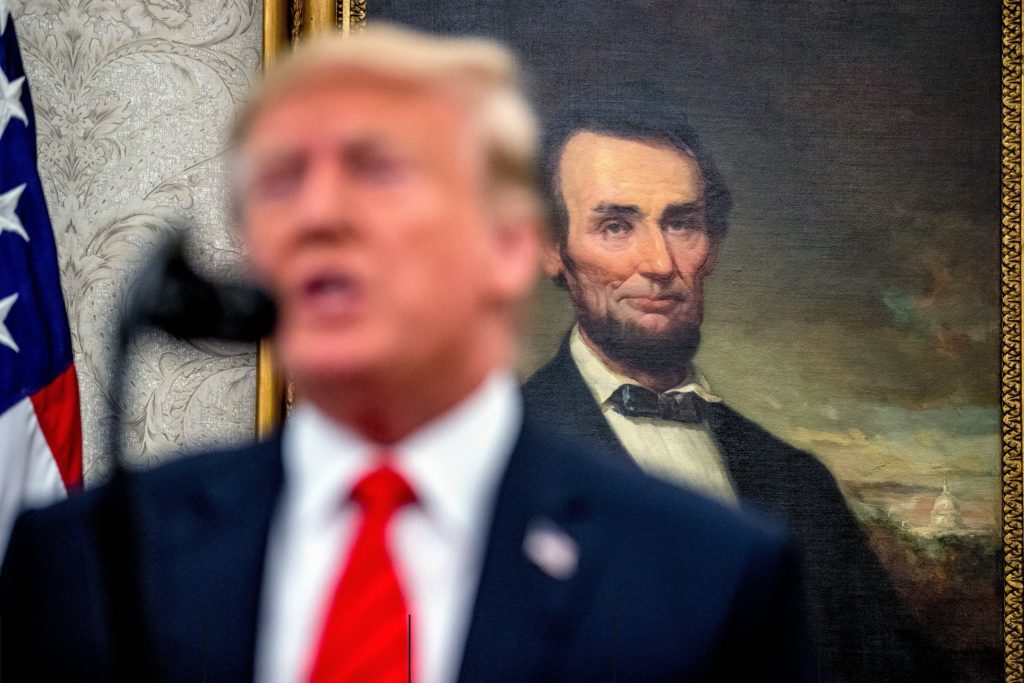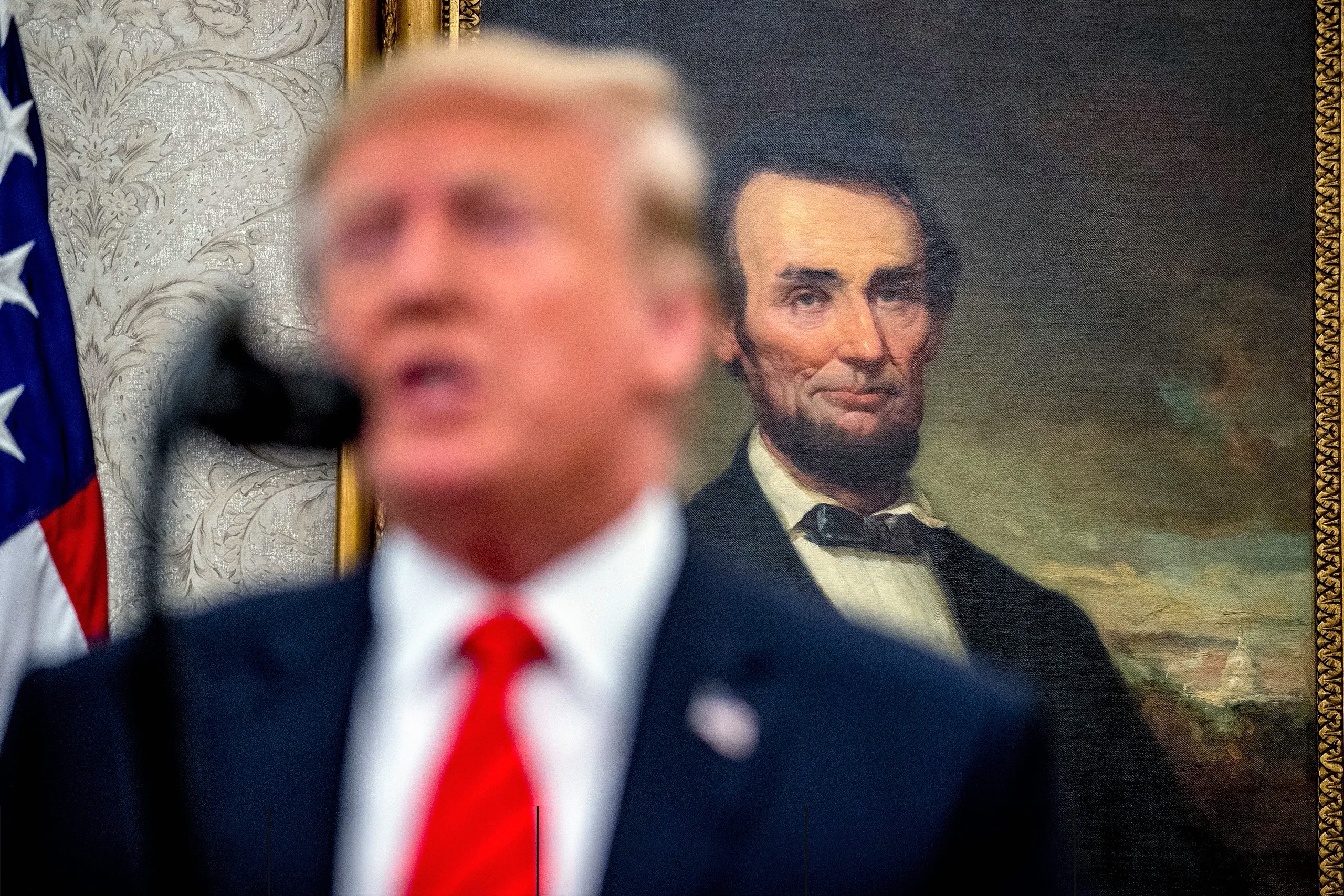With Saturday’s verdict by the Senate to acquit former President Donald Trump of inciting the attack on the Capitol, it’s more evident than ever that the Republican Party is on a ventilator and they are — for the foreseeable future — likely to willfully remain in a Trump coma.
Any additional words I might use to describe a party that is ethically reckless pale in comparison to the perils described by Lincoln and Washington. One is a truism, the other a warning.

Photo: Andrew Harnik / AP
“You can fool all the people some of the time, and some of the people all the time, but you cannot fool all the people all the time.”
According to the Abraham Lincoln Association, the quote is incorrect. Lincoln’s original words, used in his 1858 debate with Frederick Douglas, were directed at his opponent:
“Judge Douglas cannot fool the people: you may fool people for a time; you can fool a part of the people all the time; but you can’t fool all the people all the time.”
Nonetheless, the meaning remains the same. Despite the fiery rhetoric, and emotional nationalism, sooner or later, the American people catch on; they understand who you are and what you stand for.
In September 1796, George Washington gave his farewell address. Delivered from Congress Hall in Philadelphia, U.S. History.org notes that our first president’s speech “embodies the core beliefs that Washington hoped would continue to guide the nation.”
While Washington’s words speak of sacrifice and success, others are prescient in their warning.
“You have in a common cause fought and triumphed together; the independence and liberty you possess are the work of joint counsels, and joint efforts of common dangers, sufferings, and successes.
“But these considerations, however powerfully they address themselves to your sensibility, are greatly outweighed by those which apply more immediately to your interest. Here every portion of our country finds the most commanding motives for carefully guarding and preserving the union of the whole. …
“However, combinations or associations of the above description may now and then answer popular ends, they are likely, in the course of time and things, to become potent engines, by which cunning, ambitious, and unprincipled men will be enabled to subvert the power of the people and to usurp for themselves the reins of government, destroying afterwards the very engines which have lifted them to unjust dominion. …
“Let me now take a more comprehensive view and warn you in the most solemn manner against the baneful effects of the spirit of party generally. …
“The alternate domination of one faction over another, sharpened by the spirit of revenge, natural to party dissension, which in different ages and countries has perpetrated the most horrid enormities, is itself a frightful despotism. But this leads at length to a more formal and permanent despotism.
“The disorders and miseries which result gradually incline the minds of men to seek security and repose in the absolute power of an individual; and sooner or later the chief of some prevailing faction, more able or more fortunate than his competitors, turns this disposition to the purposes of his own elevation, on the ruins of public liberty. …
“It serves always to distract the public councils and enfeeble the public administration. It agitates the community with ill-founded jealousies and false alarms, kindles the animosity of one part against another, foments occasionally riot and insurrection. …
“It is important, likewise, that the habits of thinking in a free country should inspire caution in those entrusted with its administration, to confine themselves within their respective constitutional spheres, avoiding in the exercise of the powers of one department to encroach upon another. The spirit of encroachment tends to consolidate the powers of all the departments in one, and thus to create whatever the form of government, a real despotism. …
“Promote then, as an object of primary importance, institutions for the general diffusion of knowledge. …it is essential that public opinion should be enlightened. …
“Political success must have the support of religion and morality. No patriot can stand against these as they lead to happiness and aid citizens to do their duties. Both the politician and the devout should cherish them as they are vastly important to personal and national wellbeing. Without them, our courts will fail in justice. …
“In offering to you, my countrymen, these counsels of an old and affectionate friend, I dare not hope they will make the strong and lasting impression I could wish; that they will control the usual current of the passions, or prevent our nation from running the course which has hitherto marked the destiny of nations. But, if I may even flatter myself that they may be productive of some partial benefit, some occasional good; that they may now and then recur to moderate the fury of party spirit, to warn against the mischiefs of foreign intrigue, to guard against the impostures of pretended patriotism; this hope will be a full recompense for the solicitude for your welfare, by which they have been dictated.”
We ignore at our peril the words of both presidents.
Comments











